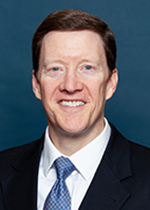
So, what do state boards that regulate community association managers and dentists have in common? According to a decision from the U.S. Supreme Court last week, possibly more than you’d think. Interestingly, the case of North Carolina State Board of Dental Examiners v. Federal Trade Commission has received little attention beyond lots of chatter by licensing boards, regulatory lawyers, and state legislators. Dawn Bauman, CAI’s Senior Vice President of Governmental Affairs, posted about the case to community association lawyers last week and there was not a single reply. This isn’t a case to be ignored, as it will likely impact many states and many professions.
The tooth whitener versus dentists battle has been going on in North Carolina for some time. Here’s the abbreviated version: the Board of Dental Examiners sent 47 “cease and desist” letters to non-dentists or manufactures associated with tooth whitening on the grounds that the tooth whiteners were engaged in the unauthorized practice of dentistry. The Board of Dental Examiner was created by state law to regulate dentistry in the state, and the Board is composed of six dentists and two non-dentists, including one “consumer.” If that model sounds familiar, it should—similar boards based on this model exist in many states to regulate medical practitioners, lawyers, other professionals, and even community association managers.
Last week the U.S. Supreme Court in a 6 to 3 decision sided with the tooth whiteners and against the Board of Dental Examiners. Without getting too deep in the weeds, the Court held that a board of professionals tasked with regulating that profession is a bit too much fox in the hen-house. Scary words like “antitrust” and “monopoly” have been tossed around to describe the regulatory board. The crux of the case seems to be that while a legislature can regulate an industry through laws, they can’t simply turn control over to a board composed mostly of professionals from that industry. As Justice Kennedy wrote in the decision, federal antitrust law “does not authorize the states to abandon markets to the unsupervised control of active market participants, whether trade associations or hybrid agencies.” The key to boards avoiding claims of antitrust appears to be “active supervision” by the state. Both the Wall Street Journal and Forbes had articles this past week analogizing the dental case to attempts by lawyers to regulate the “unauthorized practice of law.”
So, what’s the takeaway from North Carolina State Board of Dental Examiners v. Federal Trade Commission?
- State schemes that allow professional boards to regulate their own profession are suspect and possibly unfair competition.
- States may have to more actively monitor professions to avoid claims of antitrust violation claims.
- The Dental Examiners case is not the end, but just the beginning, of lawsuits surrounding such boards and the regulation of professions.

